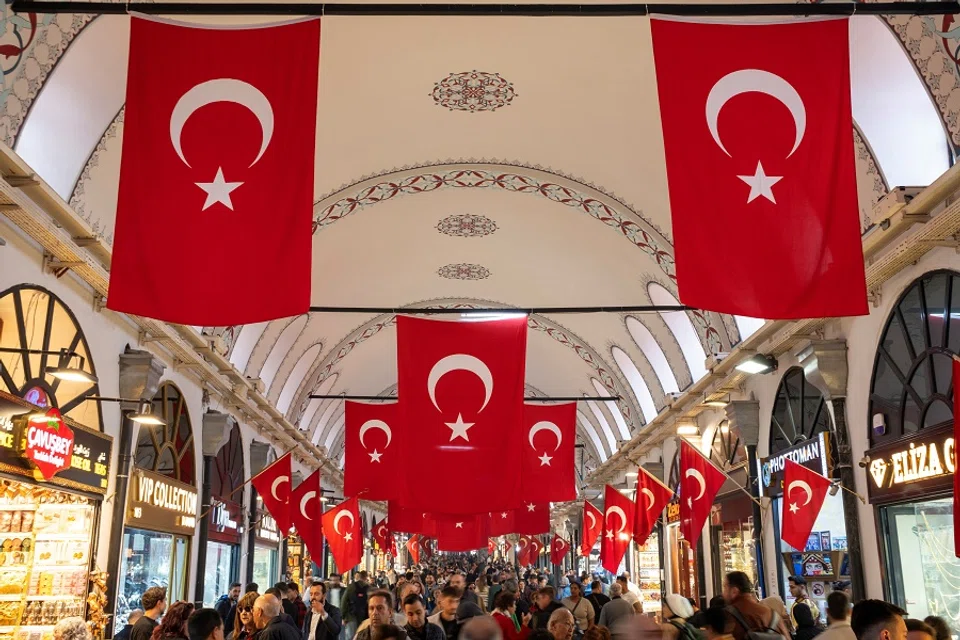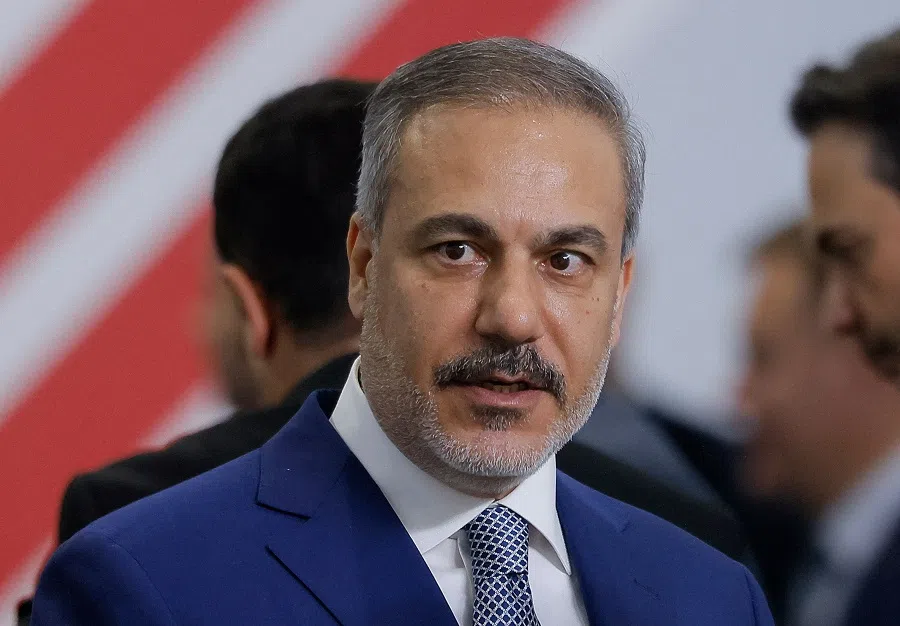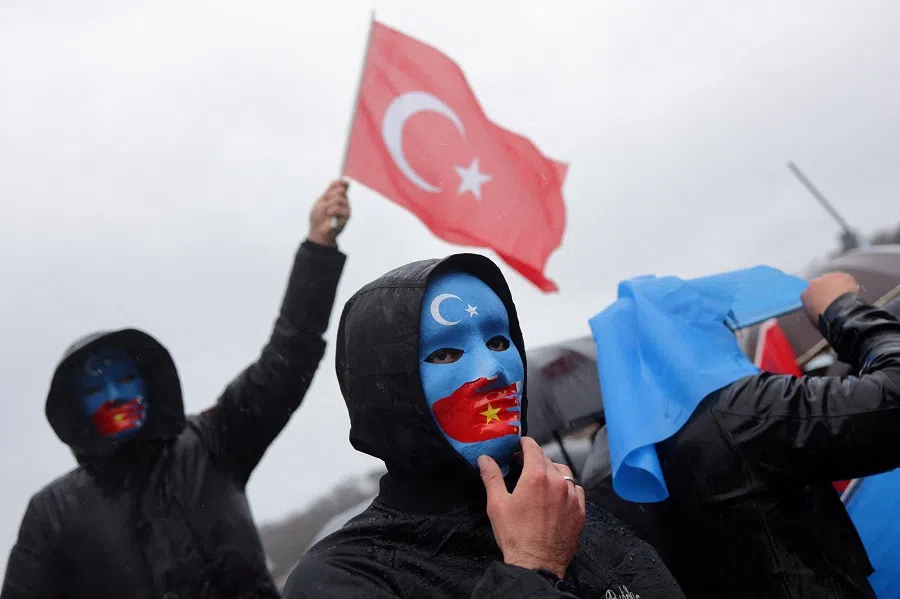Turkey forges stronger ties with China and non-Western blocs
Academic Buğra Süsler observes greater Turkey-China synergy, given Turkey’s growing interest in non-Western blocs and economic concerns in the domestic arena.

Turkey-China relations are improving after a period of stagnation as Ankara explores BRICS membership and focuses on developing closer economic cooperation with China amid domestic challenges.
One of the highlights of Turkish Foreign Minister Hakan Fidan’s visits to China and the BRICS meeting in Russia this summer was Turkey’s renewed interest in joining the BRICS bloc, which reaffirmed Ankara’s objective to develop alternative partnerships in the non-Western world and raised familiar questions about Turkey’s shift away from the West. In September, ahead of the BRICS summit in Kazan in October, it was reported that Turkey had put in an official bid to join and that Turkish President Recep Tayyip Erdoğan would join the BRICS leaders in Kazan.
Erdoğan’s call for a “fairer” global order during his speech aligns closely with the summit’s theme and BRICS’ joint declaration for “just global development”, highlighting a shared rhetoric and outlook regarding the international system.
Turkey’s interest in non-Western blocs
The high-level participation of the Turkish delegation at the Kazan summit underscores Ankara’s intent to strengthen ties with BRICS, signalling a shift towards greater engagement with emerging centres of power in the global south.
While Erdoğan frequently affirms Turkey’s Western ties, his emphasis on closer dialogue with BRICS and participation in the BRICS Plus/Outreach leaders’ dialogue — which brings together a mix of emerging economies and core BRICS members — suggests that Ankara is keen to foster closer relations with non-Western blocs.
Erdoğan’s call for a “fairer” global order during his speech aligns closely with the summit’s theme and BRICS’ joint declaration for “just global development”, highlighting a shared rhetoric and outlook regarding the international system.

Overall, diversifying international partnerships and closer engagement with non-Western global powers like China have emerged as significant aspects of Ankara’s pursuit of strategic autonomy in the face of a global power transition towards an increasingly multiplex world.
Ankara seeks Chinese investments to address its ongoing economic crisis and fund major infrastructure projects, such as those related to nuclear and renewable energy.
Developing economic relations amid domestic challenges
One of the key motivations for Ankara’s emphasis on closer cooperation with China has been economic concerns in the domestic arena. Ankara seeks Chinese investments to address its ongoing economic crisis and fund major infrastructure projects, such as those related to nuclear and renewable energy. Despite taking some measures to keep soaring inflation under control, such as formulating a public savings policy, the ruling Justice and Development Party (AKP) government has not made much progress so far.
The local elections in March were a major blow for Turkish President Erdoğan, marking his party’s biggest electoral defeat in two decades. The cost-of-living crisis played a crucial role in the results, as many voters who supported the opposition in the latest election, including those who had previously voted for Erdoğan’s AKP, wanted to signal their dissatisfaction with the government’s economic policies.
Following these results, President Erdoğan said they would focus on the “urgent issues” facing the country and reassured the voters that they would soon see the positive outcomes of the government’s economic programme. Therefore, decision makers within the AKP are well aware that their political survival may be on the line if they cannot manage to stabilise the economy.

In this context, Foreign Minister Fidan’s visit to China in June was aimed at further developing economic ties and cooperation in areas where Turkish and Chinese geoeconomic and geopolitical strategies could align. He stressed, for example, that Turkey could play a complementary role in China’s Belt and Road Initiative (BRI) and, in turn, the BRI could be harmonised with Turkey’s Middle Corridor initiative.
From the two countries’ mutual stance on Gaza, to a critique of the West through emphasising the need for fairness in the international system, to a reaffirmation of Turkey’s support for the “one China” policy, many of the points that Turkish Foreign Minister Fidan raised in his meeting with his Chinese counterpart Wang Yi signalled that Turkey was keen to enhance both economic and political cooperation with China.
The absence of explicit remarks on Uighurs during Fidan’s visit, along with the seemingly positive pictures from the region he shared on his social media, indicates that Ankara has curbed its rhetoric in favour of stronger economic ties.
Toning down rhetoric on the issue of Uighurs
Another key highlight of Foreign Minister Fidan’s visit was his trip to the Xinjiang region. The issue of the treatment of the Uighur Muslim minority in China’s Xinjiang region, which President Erdoğan described as “almost a genocide” in 2009, was a source of tension between Turkey and China.
In late 2022, relations soured over then Turkish Foreign Minister Çavuşoğlu’s open criticism of China as he said Ankara had to speak up against the human rights violations detailed in the UN High Commissioner for Human Rights’ report in August 2022 and that Beijing was disturbed by Turkey’s support for defending the rights of the Uighurs in the international arena. Çavuşoğlu also claimed that Beijing did not allow Turkey’s ambassador to freely visit the region.
Recently, however, Ankara appears to have toned down its rhetoric on the issue of Uighurs. The absence of explicit remarks on Uighurs during Fidan’s visit, along with the seemingly positive pictures from the region he shared on his social media, indicates that Ankara has curbed its rhetoric in favour of stronger economic ties. It was reported, based on information from an anonymous Turkish official, that Fidan urged Chinese officials to protect the cultural rights of Uighurs, highlighting Turkey’s “sensitivities” on the matter.

Although it is unclear how exactly this interaction played out, it is likely that Foreign Minister Fidan echoed President Erdoğan’s use of the word “sensitivity” regarding Uighur rights in his UN speech in September 2023. Similarly, in his recent UN speech in September 2024, Erdoğan reiterated that they were in close contact with the Chinese government on the issue of Uighur rights.
Foreign Minister Fidan’s visit to the Xinjiang region included sites of cultural and religious importance such as the Yanghang Mosque in Urumqi and the Mausoleum of Yusuf Khass Hajib in Kashgar. However, it also raised concerns among some observers and critics, including Uighur activists and Turkish opposition MPs.
For example, in the Turkish parliament, MPs from different opposition parties criticised Fidan for his lack of assertiveness on the issue of Uighurs, and one MP asked a formal parliamentary question about why Fidan did not visit any of the “educational camps” in question, claiming that the violations were ignored during the visit.
Signs of closer cooperation
However, in terms of economic ties, Ankara’s policy of closer economic engagement with China appears to be paying off, as many Chinese companies are increasingly interested in investment opportunities in Turkey in various sectors, including defence and energy, potentially seeing Turkey as a gateway to European markets. China is currently one of the top trading partners of Turkey, with trade volume surpassing US$48 billion in 2023, although a significant trade imbalance in favour of China exists in bilateral trade.
Notably, after Fidan’s visit, China’s electric vehicle giant BYD signed a deal to develop a billion-dollar factory in Turkey which will have the capacity to produce 150,000 vehicles annually and will make it easier for the company to target the European Union market. There are also reports of Chinese interest in Turkey’s rare earth elements, which can be used in the manufacturing of a variety of high-tech devices, including the batteries of electric vehicles.
At the same time, strengthening bilateral ties with Turkey can be beneficial for China’s strategy in the Middle East and the eastern Mediterranean. From major infrastructure projects in Iraq to its positions regarding the Israel-Hamas war, China has increased its presence in the region in recent years, effectively challenging US influence.
As Chinese Foreign Minister Wang Yi noted during his meeting with Turkish Foreign Minister Fidan, strengthening cooperation with Turkey can be beneficial to address mutual concerns, such as maintaining the stability of the global supply chain. This partnership is likely to further expand China’s economic and political influence in the region.
Given China’s favourable trade balance and the significant power asymmetry in the bilateral relationship, Ankara should be cautious about the potential risks of economic dependence on China in the longer term.

Overall, bilateral relations between Turkey and China seem to be on an upward trajectory. On 4 July, President Erdoğan met with Chinese President Xi Jinping on the sidelines of the Shanghai Cooperation Organisation summit in Kazakhstan to discuss further cooperation and extended an invitation for President Xi Jinping to visit Turkey. Following the Kazan summit in October, he further noted that he expected Xi Jinping to visit Turkey soon, after which he would make a reciprocal visit to Beijing, to advance bilateral cooperation, referring to China as a major actor in both global politics and economy. Therefore, it is reasonable to expect high-level visits with a strong emphasis on mutual cooperation in the near future.
Yet it remains to be seen whether Turkey will truly reap sustainable economic gains from cooperation with China. Given China’s favourable trade balance and the significant power asymmetry in the bilateral relationship, Ankara should be cautious about the potential risks of economic dependence on China in the longer term.
This is an updated version of an article first published on LSE’s China Dialogues blog.





